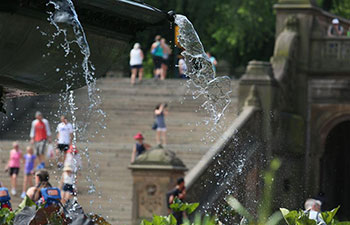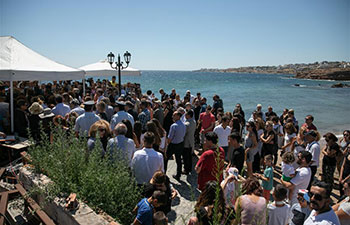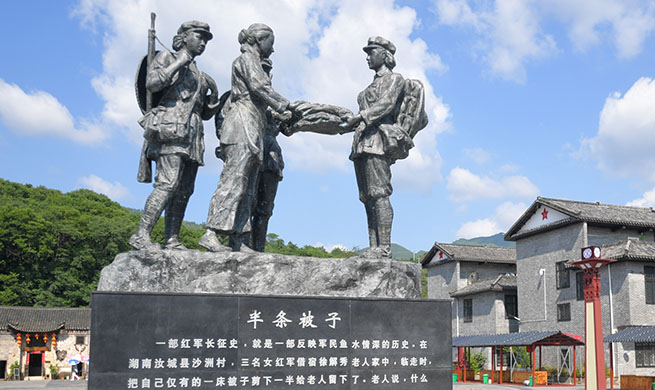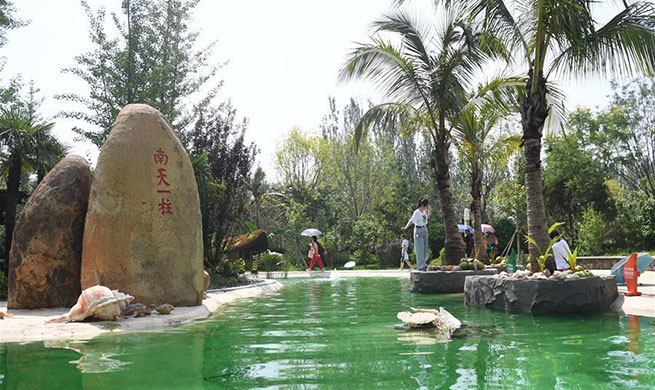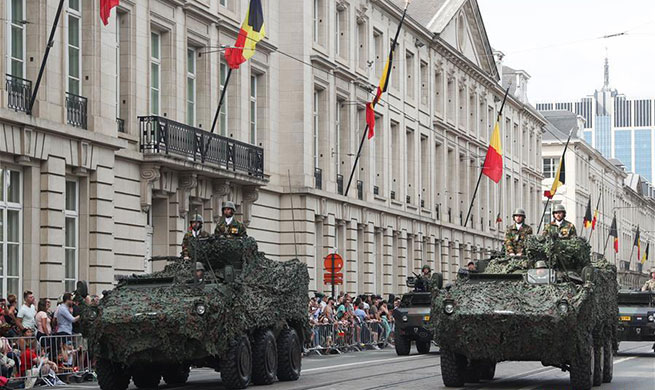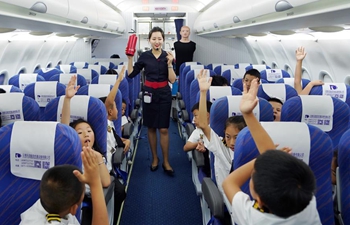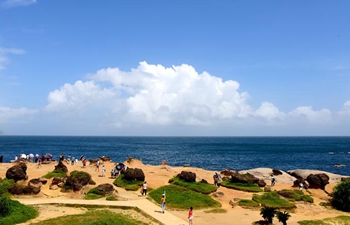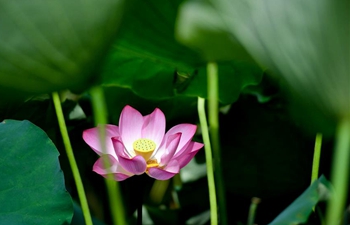The World War II-era USS Hornet Museum in Alameda in East Bay Area started the celebrations Saturday with exhibitions, on-site presentations, movie screening of a documentary recording the monumental landing on the moon by Apollo 11 astronauts, and a tourist opportunity to meet some crew members who helped recover an Apollo space capsule after it returned to Earth.
Michael Green, a former aerospace scientist who worked for the Ames Research Center, a major NASA research center at Moffett Federal Airfield in California's Silicon Valley, told Xinhua that he was proud to be part of the 400,000 American people who worked on the space program that sent humans onto the moon.
"My area of contribution was in the thermal protection system to ensure the command module of the Apollo 11 astronauts return to Earth safely," he said.
"You can do big things," he said, citing the Apollo 11's landing on the moon as an example.
"Human beings can do big things and solve big problems if they all get together," said the former NASA scientist, who has been retired for 15 years.
Green said although he did not know many details about China's space program, he marveled at China's big progress in exploring the space after he learned about China's first space lab Tiangong-2 ended its mission and reentered Earth's atmosphere under control just one day before the 50th anniversary of U.S. moon landing by humans.
He was excited to hear that China is making an ambitious plan to send its own rover to Mars to explore the red planet in the next few years.
Joseph Smith, a young engineer in his early 30s who worked for a hi-tech company in Silicon Valley, said it was great to revisit the "wonderful and marvelous" event 50 years ago on this 900-foot-long (about 280 meter long) aircraft carrier that was part of the recovery mission to retrieve the American astronauts.
He also showed huge interest in and admiration for China's space strategy. "China has made big headway in its space program and I know it has sent several astronauts to a space lab on the orbit," he said.
"I believe China will be a world leader in space exploration," he added, citing China's Tiangong-2 mission that ushered in the era of China's space station in the near future.
The USS Hornet Museum will give a special welcome Sunday to the various Hornet crew members who served on board during her years of service, including those who served aboard during the Apollo 11 and 12 recovery missions.
On July 23, the museum will host a STEM (science, technology, engineering and mathematics) day to offer free activities for all Bay Area teachers and their families to access educational programs on space and moon landing, according to the schedule of the museum's website.
